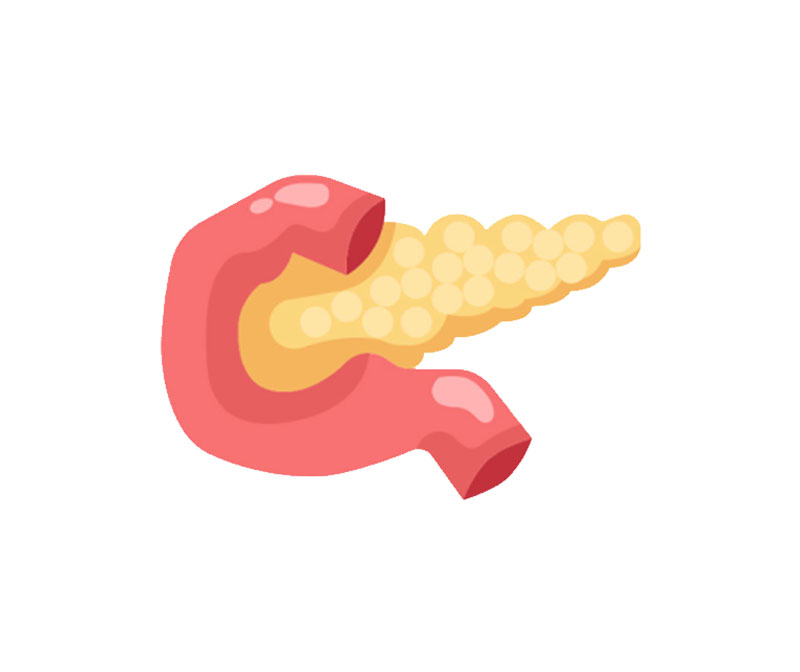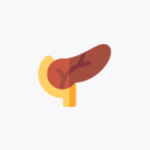Pancreas Transplant in Indore
Harnessing the Power of Transplantation: Replacing a Failing Pancreas with a New Beginning
Conducted as a surgical solution, a pancreas transplant involves the replacement of a malfunctioning pancreas with a healthy organ procured from a deceased donor. This procedure provides a potential cure to individuals facing the challenges of type I diabetes. However, the extensive side effects associated with the transplant dictate that it is typically reserved for patients with severe complications stemming from diabetes.

Looking for the Pancreas Transplant in Indore
Understanding the Need for Pancreas Transplantation
The functioning of the pancreas may be compromised by various illnesses, leading to a potential need for a pancreas transplant. While offering a potential cure for those with type I diabetes, the decision to undergo a pancreas transplant involves meticulous consideration of the balance between the benefits of the transplant and the side effects associated with post-transplant anti-rejection medications. Typically, individuals contending with one or more of the following conditions may find a pancreas transplant to be a feasible option:
- Uncontrolled Type I diabetes despite regular treatment
- Type II diabetes characterized by both low insulin production and low insulin resistance
- Poor blood sugar control
- Frequent severe insulin reactions
- Hypoglycemia unawareness
- Severe kidney damage
Categories of Pancreas Transplants
The approach to performing a pancreas transplant is contingent upon the specific situation and conditions of the patient. The following are scenarios indicating the potential need for a pancreatic transplant:

Need for only Pancreas Transplant:
Patients with diabetes and minimal or no kidney disease may be suitable candidates for a pancreas transplant alone.

Combined Kidney-Pancreas Transplant:
Surgeons often consider combined kidney-pancreas transplants for diabetes patients with existing kidney issues or for those at a high risk of kidney failure. This typically involves simultaneous pancreas and kidney transplants, aiming to provide the patient with both a healthy pancreas and kidney, minimizing the risk of future diabetes-related kidney damage.

Pancreas-After-Kidney Transplant:
For patients awaiting both a pancreas and kidney donor, a kidney transplant may be recommended first if a suitable living or deceased-donor kidney becomes available. Subsequently, once a donor pancreas becomes available, a pancreas transplant is performed.

Pancreatic Islet Cell Transplant:
In this procedure, insulin-producing cells (islet cells) from a donor's pancreas are extracted and injected into a vein leading to the liver. Multiple injections of transplanted islet cells may be necessary.
Insights to be Noted
Cost
Hospital Stay
Return to Work
Waiting Period
Locating a suitable donor can be challenging within a limited timeframe. Typically, the pancreas is sourced from an individual declared brain-dead but on life support. The donor must meet specific transplant criteria, including good health and a defined age range. Additionally, the donor's organ must immunologically match the recipient's to minimize the risk of organ rejection.
In certain cases, a living donor may provide the pancreas, usually when the recipient is a compatible twin or close relative with an immunological match. In such instances, the donor contributes a portion of their pancreas rather than the entire organ. During the waiting period for a suitable donor, it is essential to take proactive measures for self-care by:
- Regularly attending doctor check-ups and follow-ups.
- Maintaining a healthy, balanced diet.
- Taking all prescribed medications on time.
- Engaging in some form of physical activity as recommended by the doctor.
- Avoiding smoking and alcohol consumption.

Do You Have Any Query
Please fill out the form & our representative will contact you within 24hrs.
















 View Map
View Map Book an Appointment
Book an Appointment Find a Doctor
Find a Doctor Health Check-up
Health Check-up



 Find a Doctor
Find a Doctor Health Checkup
Health Checkup Book an Appointment
Book an Appointment